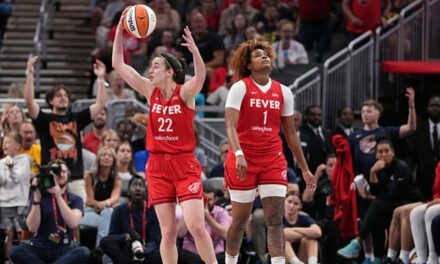We support our Publishers and Content Creators. You can view this story on their website by CLICKING HERE.

For a long time, there have been two paths that most North American hockey players can take if they want to get to the National Hockey League.
One option is to play college hockey, while the other is to play major junior puck in the Canadian Hockey League, the top level of junior hockey in North America comprised of three leagues: the Western Hockey League (WHL), Ontario Hockey League, and Quebec Maritimes Junior Hockey League.
However, because of NCAA rules on professionals, CHL players have not been able to go from playing major junior hockey to playing in the NCAA, but a class-action lawsuit filed in a U.S. District Court in Buffalo, New York last month is challenging this.
And in light of that, we’ve got the first CHL player to verbally commit to an NCAA D-1 program.
On Friday, Braxton Whitehead of the WHL’s Regina Pats announced that he has verbally committed to play for Arizona State.
According to ESPN’s Greg Wyshynski, the 20-year-old forward from Palmer, Alaska verbally committed to join the Sun Devils for the 2025-26 NCAA season.
Of course, pending the outcome of the lawsuit.
That’s a big deal for ASU, as Whitehead averaged a point per game with the Pats last season.
And while that’s a big get for the Sun Devils specifically, his announcement could lead to more players leaving the CHL to try their hand in the NCAA.
According to Sportsnet, players in the CHL get a weekly stipend of no more than $600 per month, but for tax purposes, that isn’t considered income. However, they can make money through endorsements and other NIL avenues like college athletes can now.
If the lawsuit pans out, we could see the way players progress through to the NHL completely change.
This will be really interesting, and I think it’ll be a positive for college hockey. There’s a lot of talent who decide to go the CHL route at 16-years-old, effectively ruling themselves out of NCAA opportunities.
It’ll be good to have that option on the table for players if they find that the CHL isn’t for them or if they think they can better develop in the NCAA.
I’m looking forward to seeing how this pans out and I’m sure a lot of college hockey fans are as well.

 Conservative
Conservative  Search
Search Trending
Trending Current News
Current News 





